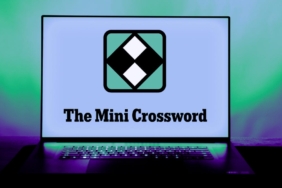Tensions that have been brewing between Silicon Valley and the media are coming to the forefront in the ongoing Federal Trade Commission antitrust trial against Meta.
During a tense cross-examination, Meta’s lead attorney Mark Hansen questioned Scott Hemphill, the FTC’s key economic expert, about Hemphill’s involvement in a 2019 proposal along with Facebook co-founder Chris Hughes and former Biden administration official Tim Wu, urging regulators to launch an antitrust investigation into Meta. Hansen presented a slide from the proposal that highlighted comments from journalists Kara Swisher and Om Malik, who had expressed concerns over the company’s aggressive acquisition tactics.
In an effort to discredit Hemphill, Hansen targeted Swisher and Malik directly. He labeled Malik a “failed blogger” harboring resentment toward Meta, and implied that Swisher, referred to as a *Vanity Fair* columnist despite last contributing in 2015, held similar biases against the corporation. To underline his accusations, Hansen showcased a headline in which Swisher had described Mark Zuckerberg as a “small little creature with a shriveled soul.”
The 2019 proposal referenced by Hansen also mentioned an article from the *New York Post*, asserting the need for a monopoly investigation into Facebook. When Hansen asked Hemphill whether he believed “the New York Post is a scandal sheet,” Hemphill responded that he had no opinion on the matter. Hansen then displayed a notorious *Post* headline, “Headless Body in Topless Bar,” to underscore his point.
This exchange highlighted long-standing friction between the tech industry and the media. After initially enjoying a wave of positive coverage during the optimistic phases of Silicon Valley’s growth, companies like Facebook have since faced increasingly critical scrutiny.
Both Swisher and Malik have a history of criticizing Meta and its leadership. In 2016, Malik voiced concerns over Facebook’s quest to provide free access to its services in India, following comments from board member Marc Andreessen, who controversially attributed local resistance to “anti-colonialism” in a now-deleted tweet. Malik expressed skepticism towards for-profit companies promoting their altruistic motives, stating, “I am suspicious of any for-profit company arguing its good intentions and its free gifts.”
It was not the first time Meta has pointed a finger at the media while at trial
Swisher has gained recognition for rigorously questioning major tech figures, including Zuckerberg, who defended controversial policies like platforming Holocaust deniers during a past interview with her. She has also labeled him as “the most damaging man in tech.”
The recent courtroom exchange is not an isolated incident; Meta has previously blamed media coverage for declines in user sentiment. Company executives have maintained that negative press has negatively impacted public perception, even asserting that their services have not experienced similar drops in user engagement.
The FTC contends that such dynamics signify a monopoly presence, as users feel unable to leave Facebook and Instagram without viable alternatives. A verdict will ultimately determine the validity of this assertion, while Meta’s grievances with the press continue to unfold.






